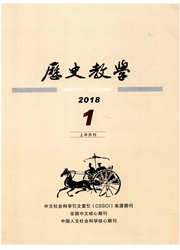

 中文摘要:
中文摘要:
在1880—1914年间,阿根廷经济经历了非常迅速的增长,这一时期也被誉为该国现代化进程的“美好时代”。一方面,土地资源的扩张、欧洲劳动力的涌入、外国资本的引进和有利的国际经济环境等经济因素是推动阿根廷经济迅速增长的重要原因;另一方面,阿根廷的统一、寡头民主政治的确立和欧洲实证主义思潮的影响等非经济因素,同样对这一时期阿根廷的经济增长做出了贡献。但正是这些因素的综合作用,使阿根廷经济具有明显的对外依附性,为该国在20世纪30年代以后不断走向“衰败”埋下了伏笔。
 英文摘要:
英文摘要:
Argentine economy experienced its rapid growth during the period from 1880 to 1914, when has been regarded as the Epoca Bella of the Argentine modernization process. The economic fac- tors including the expansion of land resources, inflow of European immigrants, absorption of for- eign investment, and favorable international economic environment, on the one hand, speeded the economic growth from 1880 to 1914; the non-economic factors including completion of national integration, consolidation of oligarchy democracy, and spread of European positivism, also pro- moted the economic growth in Argentina at the same time. It is both the economic and non-eco- nomic factors that caused the Argentine economy became declining.
 同期刊论文项目
同期刊论文项目
 同项目期刊论文
同项目期刊论文
 期刊信息
期刊信息
